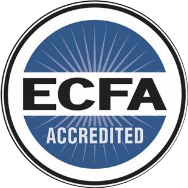Allinder June 2021
“Whatever you do, work heartily, as for the Lord and not for men” (Colossians 3:23).
Greetings from Rafiki Village Zambia!
As most of you know, my role in this Rafiki Village is that of Education Director. It is my privilege to oversee the four schools at our Village: preschool, primary, junior secondary, and senior secondary. In this newsletter, I would like to explain a bit about the type of education we offer here which is the same as in the Rafiki Schools in the other nine countries where Rafiki Foundation is operating.
Our school is a classical Christian school. What would you see if you were to visit us? (And please do consider doing so.) You would first see the “Christian” part of our school name. We begin every day with the Rafiki Bible Study. Teachers meet before school (as do the cooks and other workers in the dining hall) for group discussion of that week’s Rafiki Bible Study. Promptly at 08:00 the classes start with Bible study. The Rafiki Bible Study is now available for groups in the U.S. and I would encourage you to check it out. You will be greatly blessed by it, as we all are.

Grade 3 Bible Lesson
As you visit our classrooms, you would also see the “classical” part of our school name. As a classical Christian school we build our teaching materials and methods around the liberal arts (liberal meaning “to liberate from the darkness of ignorance and unbelief”). You would see children in grade one learning phonics, grade three introduced to writing and rhetoric, grade eight making pyramids in history class and later in the day studying formal logic, grade ten learning about famous scientists during biology class, grade eleven reading Much Ado About Nothing, and grade twelve finishing their two-year course in rhetoric. I could go on and on but I think you get the idea—we emphasize learning from the classics (modern and ancient) in art, music, literature, and the sciences in an integrated way.
You would also see an emphasis on the fine arts. All students from preschool to grade twelve have weekly lessons in art that include theory and practice, as well as learning about famous artists. Students in preschool to grade six have weekly music lessons where they learn about famous composers, music theory, solfege, and how to sight sing.

Grade 4 Art Lesson
Finally, you would see our classical Christian school students learning the common arts. The common arts are, in the words of the author Christopher Hall, “ the skills that provide for basic, embodied human needs through the creation of artifacts or the provision of services .” In other words, using your hands as well as your head, or to put it simply, making things and doing stuff like the following: growing vegetables, sewing on buttons, building a bookshelf, etc. Some examples of this are the students in grades five to seven who take a Zambian subject that includes a lot of home economics. Students learn knitting, sewing, a bit of woodworking, and local ways of cooking. What is different in our school is that students do not just read about these things, but actually do them.

Grade 7 students cooking on a brazier, not for a barbecue but in the way most rural Zambians cook
Also for the common arts, our grade ten students (in addition to classes in literature, sciences, history, and civic education) are learning animal husbandry. They are in charge of our chicken project where they learn about vaccines, types of feed, watering and feeding schedules, and marketing skills.

Grade 10 students feeding the rapidly-growing chicks who have huddled around the heat lamps
When local families visit our school, the first things they notice are not the liberal, fine, or common arts. They notice that our classes have between fifteen and twenty students, not seventy in a class as in most government schools. They notice that our computer lab has laptops for every student in class, and that our science lab is well-equipped with supplies—not common at nearby schools. They notice also that every student has all the necessary school supplies and textbooks, also uncommon in most other schools. They notice that every class has a well-prepared teacher present.
We are very privileged to offer this type of education to students here, but it is not inexpensive. Of our 280 students, 227 are day students whose parents pay school fees (sometimes at a sacrifice) for their children to attend our school. These school fees provide only 20% of what it costs to offer this rich and vibrant form of education to students. The remaining 80% comes from generous donors who want this type of education to be available to as many children as possible. If you would like to help provide a classical Christian education to students in a Rafiki School, you can learn more about it at rafikifoundation.org. If you choose to sponsor a day student you will receive quarterly updates on their progress and prayer requests from him or her. You will be making it possible for a child to grow in wisdom and virtue, and to learn to love that which is good, true, and beautiful.
I end this letter as usual—thanking you for your continued prayer, financial gifts, and support. May God richly bless you all!
Please click here for a printer friendly version of this newsletter.

 Copyright 2022 by Rafiki Foundation • Design by
Copyright 2022 by Rafiki Foundation • Design by